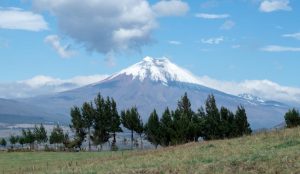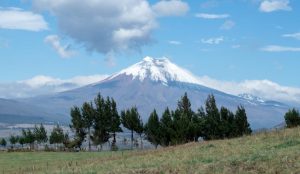
Ecuador may change its laws around hemp as part of a broader overhaul of how the South American country treats medical cannabis.
Last week, Ecuador’s Congress approved a major reform of the Organic Integral Criminal Code. Ecuador is one of the few South American countries that still has not legalized hemp nor medical cannabis.
If given the green light by the executive branch – which has the authority to veto proposed laws wholly or partially – the reform would:
- Treat hemp separately than medical marijuana, possibly creating opportunities for low-THC cannabis cultivation, depending how it’s regulated.
- Decriminalize possession of medical cannabis under certain circumstances.
- Create opportunities for the production of cannabis-based medicines with scientifically proven quality and safety.
The article of the criminal code that would be reformed to allow cannabis possession, would – in its reformed version – make possession nonpunishable when it’s for medical use and justified by a professional diagnosis.
The article would be reformed to allow commercial opportunities. Ecuador would maintain a general prohibition on production, but introduce an exception for specific cases mentioned in the already existing Organic Law on the Integrated Prevention of Drugs and the Use of Controlled Substances.
Too restrictive
The proposed law would allow cultivation and production only for medicines with proven “quality and safety” or research.
Juan Pablo Bahamonde, director of UBG, an Ecuadoran company that specializes in health regulatory affairs, told Marijuana Business Daily that “the law is restrictive in this sense, and it’s a contradiction that the possession of medical cannabis would be decriminalized, when in practice growing and selling would remain impossible other than for pharmaceutical products.”
“It looks more like a political move than a pathway for effective access and commercial opportunities,” Bahamonde said.
The reform would also remove hemp – defined as cannabis with THC below 1%, as in Uruguay or Colombia – from the controlled substances list.
The national agricultural authority would regulate hemp production, potentially creating hemp business opportunities.
But it’s still too early to know how the specifics would work.


